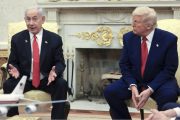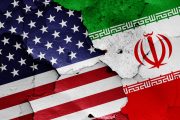
Moments ago, the United States Senate voted 71-26 to approve ratification of the New Strategic Arms Reduction Treaty, also known as New START. The treaty replaces an expired START that limits the number of nuclear weapons that may be maintained by Russia and the United States, and implements a joint system for verification.
The New START limits strategic warheads to a maximum of 1,550, a reduction from the 2,200 permitted under the former agreement. It also sets a maximum of 800 land-, air-, and sea- based launchers.
The likelihood of the treaty’s passage became evident yesterday when the Senate voted 67-28 to invoke cloture on the treaty.
Prior to the final Senate vote this afternoon, Senator John Kerry, who spearheaded the effort to pass the treaty, gave a final statement:
As we end our debate on the New START Treaty, I believe we can say the Senate has done its duty, and done it with diligence, serious purpose, and honor. And I am confident that our nation’s security — and that of the world — will be enhanced by ratifying this treaty.
Debate over ratification was contentious as Republican Senators articulated concerns that the treaty limits America’s capability to defend itself with nuclear warheads. At issue for many opponents was language found in the preamble that linked missile defense and strategic offensive weapons for the first time. Other critics bemoaned the treaty’s unilateral disarmament for the United States as Russia is currently below the number of “strategic” missiles permitted under the treaty, therefore virtually allowing Russia to increase its production.
Staunch critics included Senate Minority Leader Mitch McConnell, Senator Lindsey Graham of South Carolina, and Senator Jon Kyl of Arizona.
Others were on the fence, including Senator John McCain of Arizona, who previously sponsored a failed amendment to the preamble that would have changed the language delinking missile defense and strategic offensive weapons. The approval of the amendment would have sent the treaty back to the negotiating table, an act that, according to Senator John Kerry of the Senate Foreign Relations Committee, would have killed it.
However, without the proper number of votes to prevent passage, the treaty was ratified easily. The measure required the support of nine Republicans. Yesterday afternoon, Republican Senator Johnny Isakson of Georgia became the 10th to indicate his intent to support the treaty.
The Republican support was not without effort, however. Business Week reports, “The administration’s lobbying push included a classified briefing and calls and letters from Obama and top advisers.” Likewise, Vice President Joe Biden and Secretary of State Hillary Clinton went to the U.S. Capitol yesterday in order to resolve any remaining concerns.
A number of prominent figures supported ratification of the treaty. Business Week writes, “Former President George H.W. Bush, current and former U.S. military commanders and Cabinet secretaries, including Henry Kissinger and Colin Powell all supported ratification.”
Prior to today’s vote, Russian President Dimitry Medvedev indicated that he was optimistic that the treaty would be approved by the Senate.
Russian lawmakers indicate that they will vote on the treaty before the end of the week. Once they ratify START, the treaty will take effect.
Photo: Russian Bulava submarine-launched ballistic missiles





